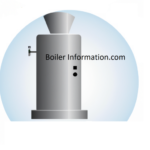Industrial boilers are complex systems that require fuel sources to operate effectively. Boilers are used in a wide range of industrial settings, including power plants, factories, and manufacturing facilities. Depending on the size and purpose of the boiler, different fuel sources can be used to power it. Common fuel sources for industrial boilers include natural gas, biomass, oil, coal, and electricity.
Natural gas is the most common fuel source for industrial boilers. Natural gas is a clean-burning, efficient source of energy that is easy to access and transport. Industrial boilers powered by natural gas typically have low emissions, making them environmentally friendly.
Biomass is another popular fuel source for industrial boilers. Biomass includes organic materials like wood, paper, and agricultural waste. Biomass is a renewable source of energy that can be used to generate heat and power. Biomass fuel is typically burned in the form of pellets or chips, and the combustion process is relatively clean and efficient.
Oil is also used to fuel industrial boilers. Oil is a fossil fuel that is refined from crude oil sources. Oil-burning boilers are commonly used in industrial settings due to their relatively low cost and easy access. However, oil-burning boilers can produce high levels of pollutants, so they are becoming less popular in recent years.
Coal is another fossil fuel that is used to fuel industrial boilers. Coal is a reliable and cost-effective source of energy that is relatively easy to access. However, coal-burning boilers are highly polluting and are not often used in modern industrial settings.
Electricity is the most efficient fuel source for industrial boilers. Electric boilers are capable of heating water quickly and efficiently. They are also easy to maintain and operate. However, electric boilers are expensive and require large amounts of energy to operate.
No matter the fuel source, industrial boilers must be properly maintained to ensure their safe and efficient operation. Regular maintenance, such as cleaning and replacing parts, can help to extend the life of the boiler and reduce the risk of breakdowns.
In summary, industrial boilers require fuel sources to operate. Common fuel sources for industrial boilers include natural gas, biomass, oil, coal, and electricity. Each fuel source has its own advantages and disadvantages, so it is important to research the best option for each specific application. Proper maintenance of industrial boilers is also important to ensure their safe and efficient operation.
